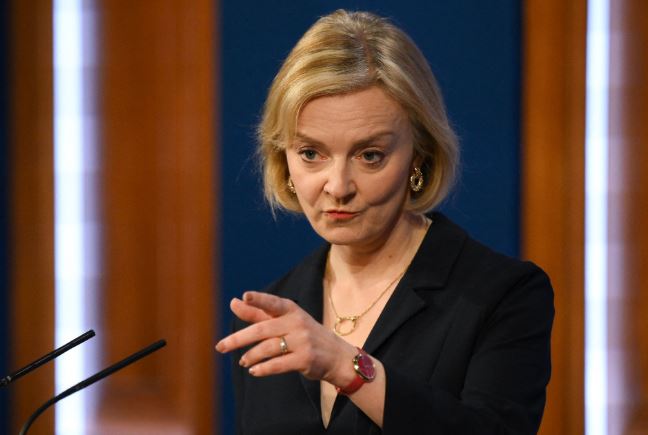British Prime Minister Liz Truss has announced her resignation just a month and a half after taking office.
The development came on Thursday after her new Chancellor of the Exchequer, Jeremy Hunt, had rolled back virtually all of her economic agenda.
Hunt’s move was supposed to be an impetus for growth, but it became Truss’s declaration of political bankruptcy.
At the beginning of this month, at the Conservative Party Conference in Birmingham, Truss had still attempted to rally the party around her controversial approach of boosting Britain’s economy.
“I have three priorities for the economy: growth, growth, growth,” she said.
But what was supposed to be a change from the tumultuous era of former Prime Minister Boris Johnson unravelled at a pace that is almost unprecedented in British history, Nicholas Allen, professor of politics at Royal Holloway, University of London.
“Previous prime ministers’ central policies have unravelled very quickly, for instance, Neville Chamberlain’s leadership during the spring of 1940, Sir Anthony Eden’s Suez adventure, and David Cameron’s campaign to remain in the EU. I can also think of the backlash to Gordon Brown’s decision not to call a general election in the early autumn of 2007,” Allen said.
“But no new prime minister’s position has unravelled so early into their premiership or so catastrophically as Truss’s has over the last few weeks.”
The 47-year-old, who entered parliament in 2010 and, by 2014, found herself in a first cabinet position, secretary of state for environment, food and rural affairs under former Prime Minister David Cameron, has since served under Theresa May and Johnson in various positions.
Liz Truss was named UK Prime Minister in September, replacing Boris Johnson and defeating Rishi Sunak to become the third woman to hold the office. Her predecessor Johnson also left in turmoil after the resignation of dozens of MPs relating to various scandals during his time in office.





